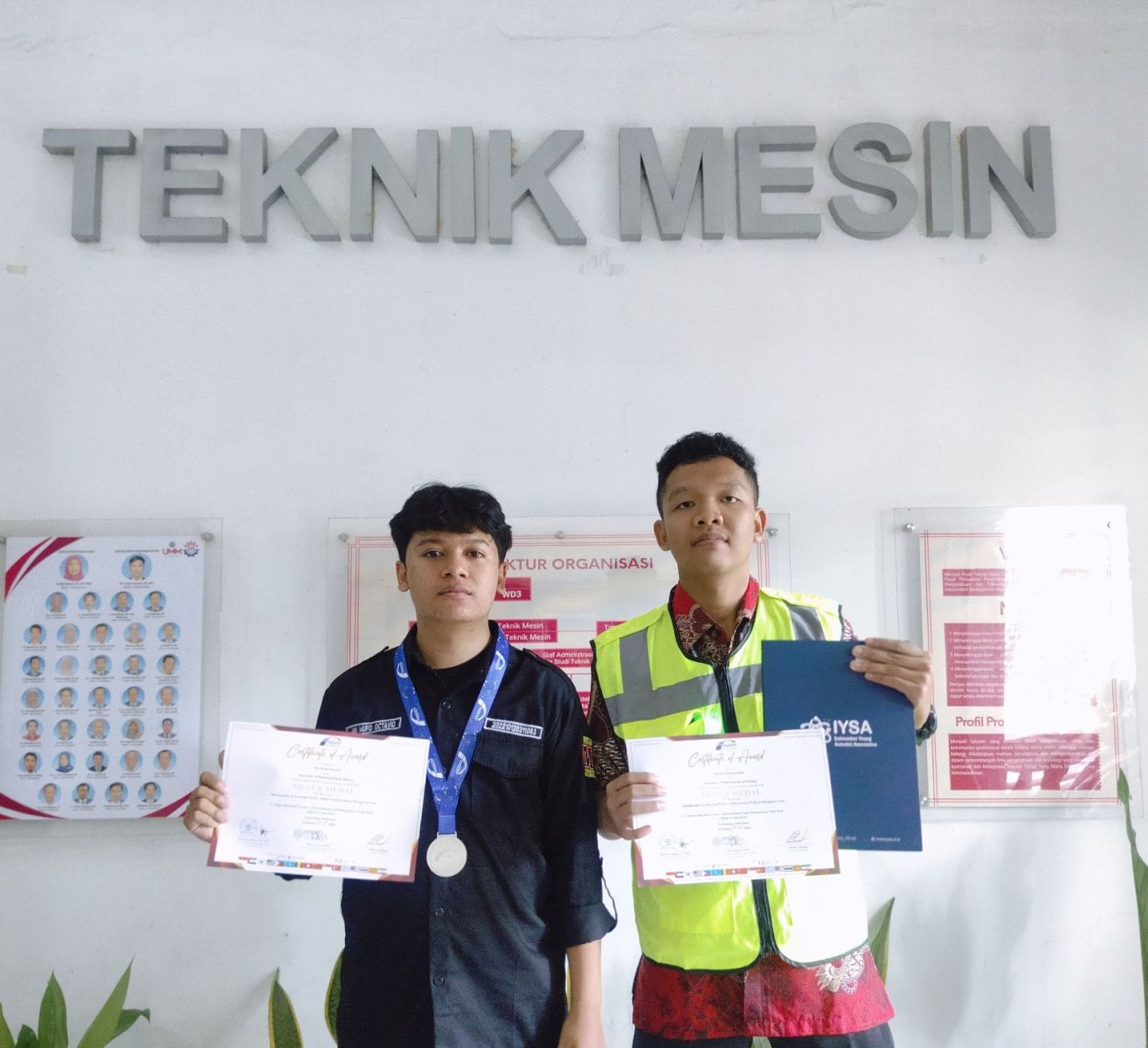 |
| UMM Students Win Silver Medal at AISEEF (Photo: Special) |
Abi Mufid Oktavio and Farhan Rahmatullah, two mechanical engineering students from Universitas Muhammadiyah Malang (UMM), successfully created the SLEST (Stopper Sleeping Vest). Thanks to this innovation, they also brought home a silver medal at the Asean Innovation Science Environment and Entrepreneur Fair (AISEEF) last April.
AISEEF is an annual event organized by the Indonesian Young Scientist Association (IYSA). This year, AISEEF was attended by 447 teams from 17 countries, including the United Arab Emirates, Kazakhstan, Romania, Iran, Greece, Turkey, Macedonia, Portugal, the United States, South Korea, China, Thailand, Singapore, Hong Kong, the Philippines, Malaysia, and Indonesia.
Read more : UMM's Woman E-Sport Team Champions National Competition
Mufid, the team leader, explained that the device they created is called the SLEST (Stopper Sleeping Vest). This device is optimized with a heart rate detection tool to monitor the productivity levels of workers in the field. "Through this SLEST, we can monitor the fatigue levels of workers on a screen. When workers are tired and their heart rate increases, a red light and an alarm will appear," he explained.
Furthermore, the fourth-semester student also detailed that the creation of the SLEST required project workers' vests, arthritis tools, and heart rate detectors. Thus, the device can be used. The background for creating this tool was due to the high number of cases of project workers experiencing heart attacks from frequently working overtime until late.
"We also use an electronic push-pull system combined with a battery and arthritis tools. Then it is connected to sensors programmed with our own coding. The sensors are attached to the vests, and the heart rate sensor is covered with a plastic clip layer to prevent direct contact with sweat. The sensor will malfunction when it gets wet," he said.
Read more : UMM-CIMB Niaga Collaboration, Supporting the Entreprenership Potential of Young People
The sensor will light up and sound an alarm when it detects a heart rate below 50 beats per minute. Mufid also explained that the SLEST has been tested during practicals and used by project workers. "According to the project workers tested, initially, its use was uncomfortable because it needed to be close to the pulse. However, for the sake of safety, this is necessary," he added.
The student from Malang Regency also recounted the competition process. The judges were not only from Indonesia but also from Malaysia, the United States, and others. The aspects assessed included the relevance of the theme, social urgency, impact on the community, and creativity.
In the future, he and his team aim to modify the device to be thinner, making it more comfortable and effective to use. They also plan to upgrade the coding on the detection sensor to cover a wider range. "This is still in the patent process. Hopefully, it can become a useful tool, especially for the health and fitness of project workers," he concluded. (ri/wil/fajr)